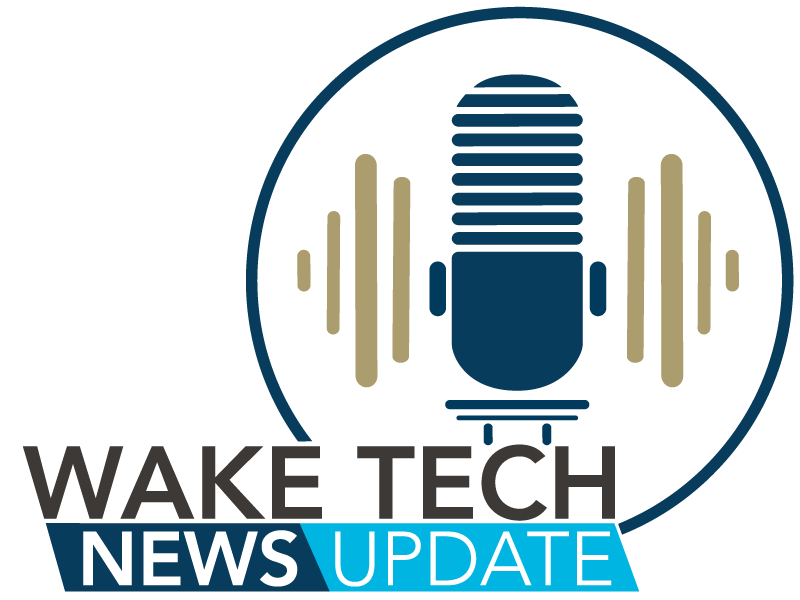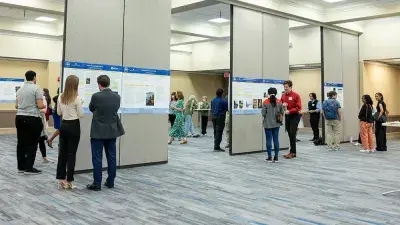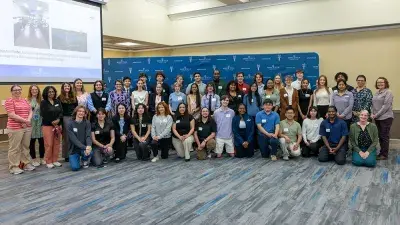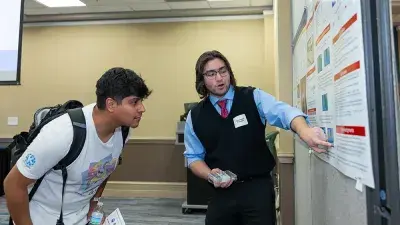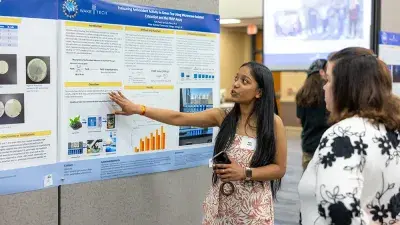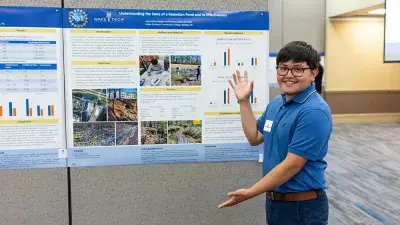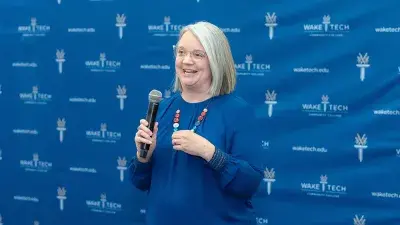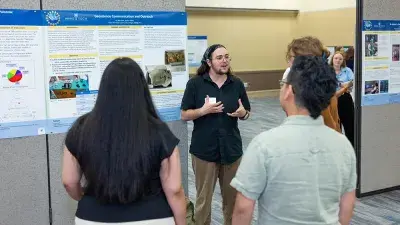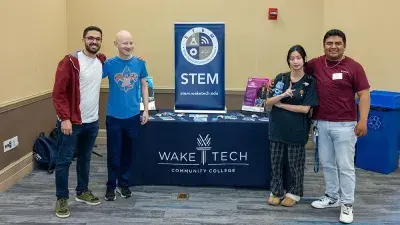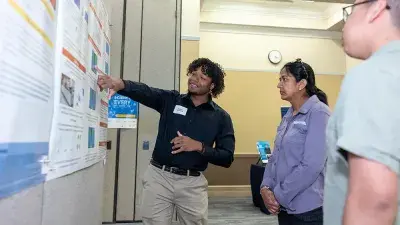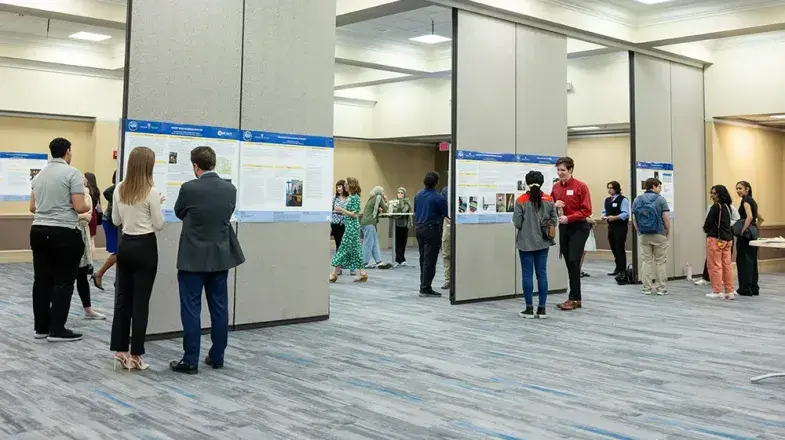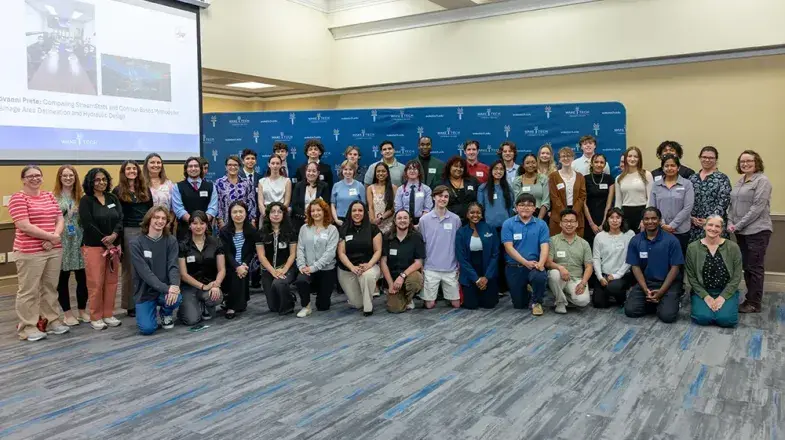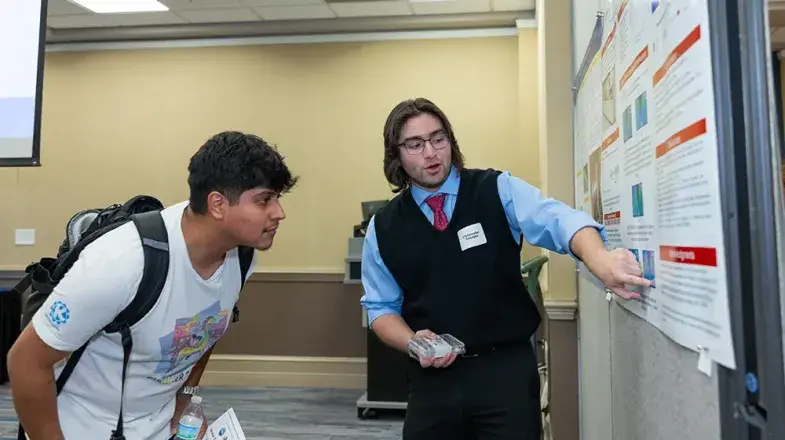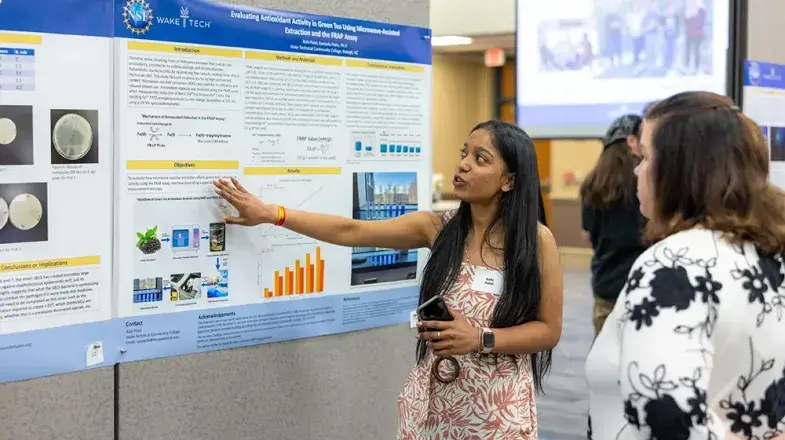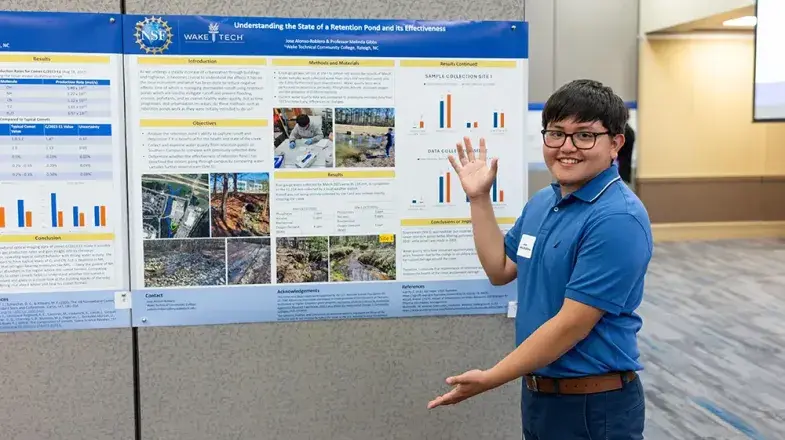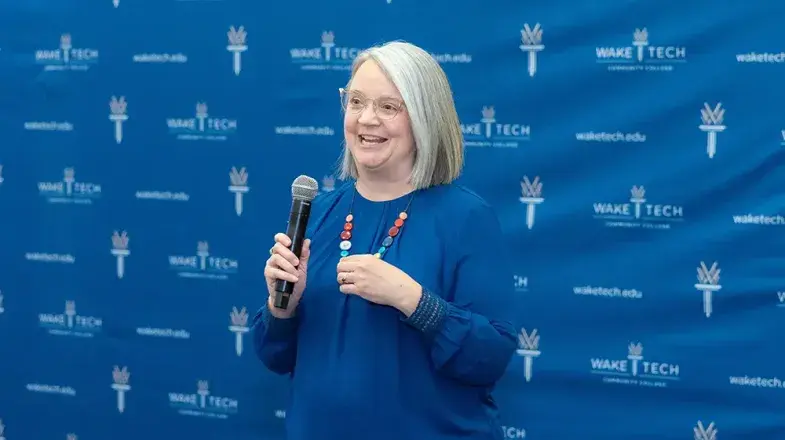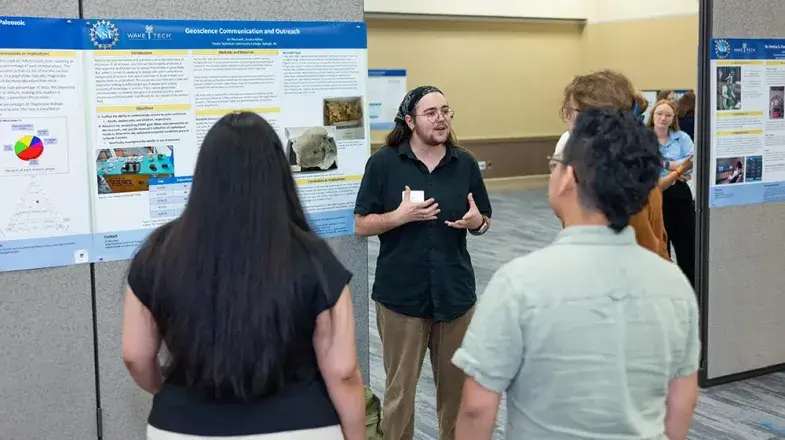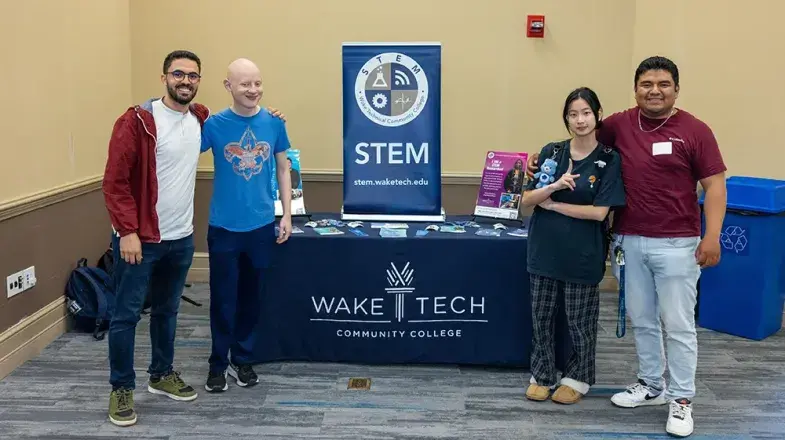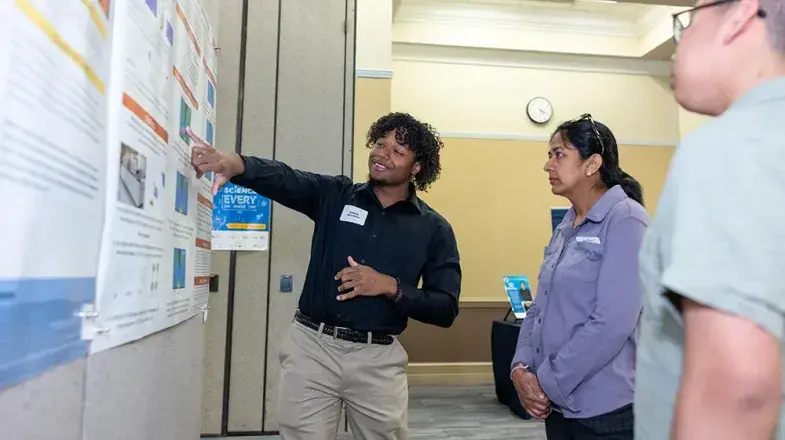Events
Showcasing a Semester of STEM Discovery
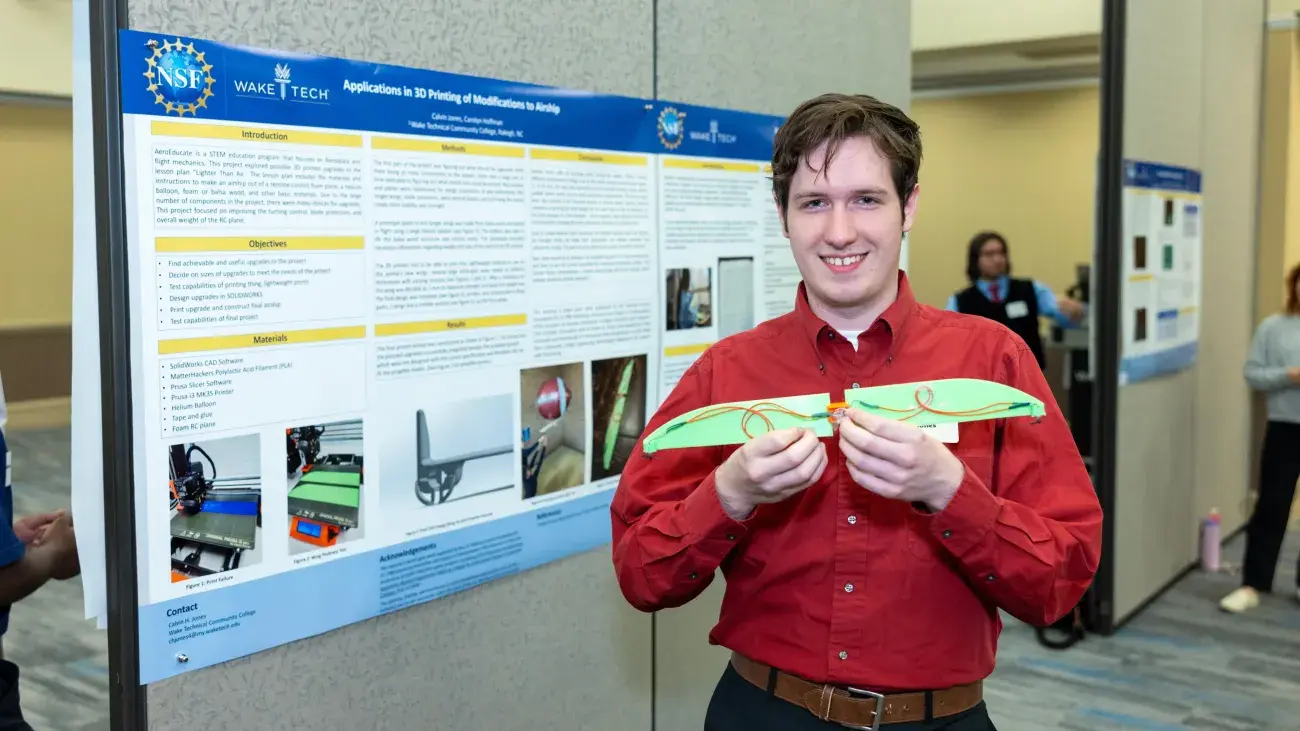
Photo Gallery
RALEIGH, N.C. (April 28, 2025) – Curious minds, bold ideas and months of hard work came to life as student researchers in Wake Tech's STEM Academic Research & Training (START) program took the spotlight Monday at their Spring Showcase.
From evaluating biodiversity to measuring antioxidant activity in green tea, 41 students studying science, technology, engineering and math (STEM) gained hands-on experience this semester as paid research interns in the START program.
Students spent the past 16 weeks conducting research in areas like biology, mathematics, 3D printing and geology and presented their findings to faculty and staff at an end-of-semester showcase held on Southern Wake Campus. Their discoveries reflect the unique opportunities Wake Tech students can expect as they prepare for their futures at a four-year college or university.
"This experience has helped me narrow down what I enjoy and want to do in the future," said Shirley Perez Baltazar, who is pursuing an Associate in Science degree. "Working on this project has helped me realize that I definitely like working in the lab and am starting to lean towards a future in microbiology."
The START program is funded by a $1.4 million grant from the National Science Foundation, along with contributions from Duke Energy, Terracon, the Christman Company, Clancy & Theys, Brooks Pierce and DeLisa Alexander.
The student researchers, guided by their assigned faculty mentors, dedicated an average of three hours per week to the program. In all, they logged 40 hours of research, 15 hours of training and five hours of community building during the semester.
Much of the research was conducted in the college's state-of-the-art STEM Lab on Scott Northern Wake Campus and in labs on Southern Wake Campus. Many of the projects involved collaboration with four-year institutions such as North Carolina State University, the University of North Carolina at Chapel Hill, Fayetteville State University and Appalachian State University, as well as industry partners like the North Carolina Department of Transportation.
The START program is currently accepting applications for the Fall 2025 semester. Research projects are available in 3D printing, astronomy, physics, biology, chemistry, geology, mathematics and science communication.
